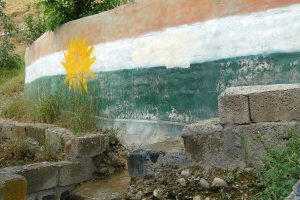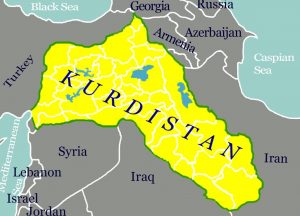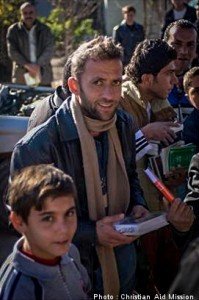Iran (MNN) — The Iranian Revolutionary Guard has even started a military recruitment campaign to possibly attack the Iraqi Kurdistan region if they declare independence.

Kurdistan, Iraq (Photo courtesy of Adam Jones, Ph.D. via Wikimedia Commons – Own work, CC BY-SA 3.0, https://commons.wikimedia.org/w/index.php?curid=22189619)
The Kurdish region spans Iraq, Turkey, Iran, and Syria. They have their own language, culture, and history. But the Kurds — numbering between 15 and 20 million — are often underrepresented by their central governments and have even faced genocide in the past. If Iraqi Kurds declare independence, Iran is worried that the Kurds in their country will begin making more demands of Tehran and even start their own rumblings for independence.
Tom Doyle with e3 Partners and author of “Standing in the Fire” explains, “They (the Kurds) have always longed for their own state. They’re in between Iran and Turkey, and it would not be surprising — if they declared independence or moved forward — if both nations attacked them. That’s how dangerous it is…. With Iran jumping in and possibly Turkey, this could be catastrophic in the Middle East.”
The Kurdistan Regional Government (KRG) officials are trying to assure neighboring nations that the referendum in Iraq is not indicative that they will encourage similar independence movements in other countries with Kurdish populations.
Mala Bakhtiyar of the Patriotic Union of Kurdistan (PUK) told Iranian officials, “We do not trust the international community or Iraq or the post-IS era to guarantee our people’s future and therefore have decided to hold this referendum.”
But still, this hasn’t set nations like Iran at ease. What could the destabilization of Kurdistan mean for the region?

(Map courtesy of Wikimedia Commons)
Doyle reflects, “I would not be surprised, if this went forward, if there was not a regional war over the Kurdish issue because there’s a big land grab and a power grab among the strong Islamic groups now in the Middle East.
“When America signed the nuclear agreement with Iran, the Kurdish…thoughts of America really changed. They felt betrayed because here they were the only group successfully fighting against the Islamic State, not just with drones, but with soldiers, with live bodies out there fighting and they felt distanced, dismissed by the United States. And I think during that time, Kurdish leadership just realized that [they] really don’t have stable friends around the world.”
Just as the Iraqi Kurds are pushing for national freedom, many still live in spiritual bondage. The Kurdish people are mostly Muslim and are overall considered unreached with the Gospel, according to the Joshua Project.

People of all religious backgrounds and ages are eager to receive Bibles in Kurdistan.
(Image, caption courtesy of Christian Aid Mission)
“There are some above ground churches and then some underground churches. There was a time period where people in the Middle East worked and they were saying that Kurds were extremely open. As the nationalistic spirit grows and this move for independence kind of occurs, we don’t know what that is going to hold. Sometimes that really pushes people to consider spiritual solutions rather than political, so that could be good. But we don’t know at this point,” says Doyle.
We need to pray for peace in this upcoming referendum, and that ultimately the Kurdish people would find true freedom — in Christ.
“We know that the physical war on the ground is a reflection of the spiritual war raging in the heavenlies. And here’s what’s happening: Islam is a religion that is declining in many ways in that, in the last 10 years, more Muslims have come to faith in Christ than in the last 1,400 years of Islam. So this huge open window,…what people have prayed for decades, for centuries, is happening. Muslims are coming to faith in Christ.”
